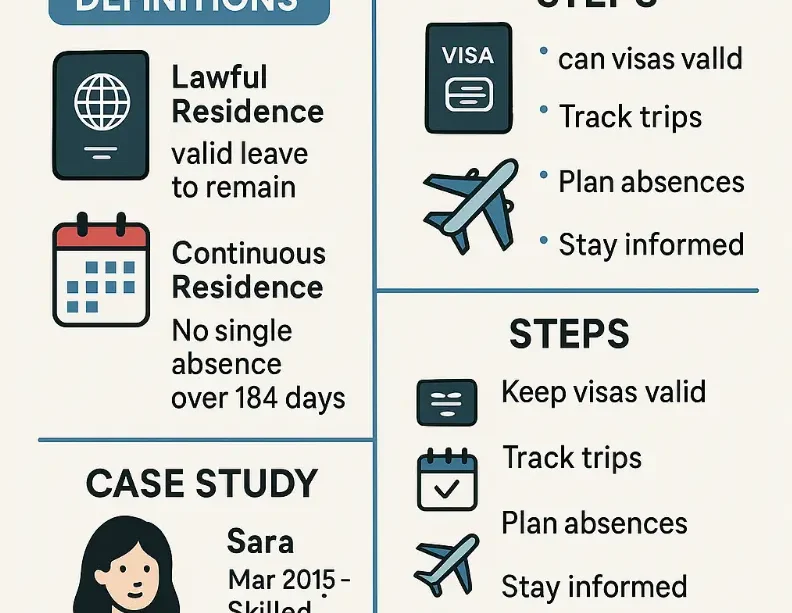Understanding UK Immigration ILR: Benefits and Process

Introduction
Indefinite Leave to Remain (ILR) is a crucial step for many immigrants in the UK, offering them the right to stay permanently in the country. Understanding the dynamics of ILR is significant, particularly in light of recent changes in immigration policies following Brexit. With a heightened focus on skilled migration and residency rights for EU citizens, aspiring applicants need clear insights into eligibility requirements and procedural adjustments to navigate the process successfully.
What is Indefinite Leave to Remain?
ILR is a status granted to non-British citizens allowing them to live and work in the UK without restrictions. Individuals who hold ILR are no longer subject to immigration control and can access public services, paving the way for future citizenship applications. This status is critical for residency stability and offers persons a sense of security in the UK.
Eligibility Criteria
The eligibility for ILR varies based on the individual’s circumstances, including their immigration status, time spent in the UK, and adherence to immigration law. Applicants typically need to fulfill the following criteria:
- Have lived in the UK for a qualifying period, usually five years.
- Demonstrate a good character, presenting no criminal history.
- Show proficiency in English, passing an approved language test.
- Provide evidence of continuous residency, meaning no significant gaps or absences from the UK.
The Application Process
The application for ILR involves a number of steps that applicants must carefully follow. It begins with completing the appropriate application form, typically the SET(O) form for most visa categories. Following submission, applicants will receive a biometric appointment to collect fingerprints and photographs. The processing time varies, but it generally takes about six months. Recently, certain applicants have reported longer delays due to high demand and administrative backlogs.
Recent Updates and Implications
Following policy amendments post-Brexit, the UK has shifted its immigration focus towards a points-based system favouring skilled workers. The changes have made it essential for applicants to keep abreast of any new regulations that may affect their eligibility or application timeline. These developments highlight the importance of professional guidance when preparing for an ILR application.
Conclusion
Understanding UK immigration ILR is vital for any individual looking to establish permanent residency in the UK. As immigration policies continue to evolve, it will be crucial for potential applicants to stay informed about the changing requirements and processes. With the right preparation and timely application, securing ILR can pave the way for a stable and prosperous future in the UK.









